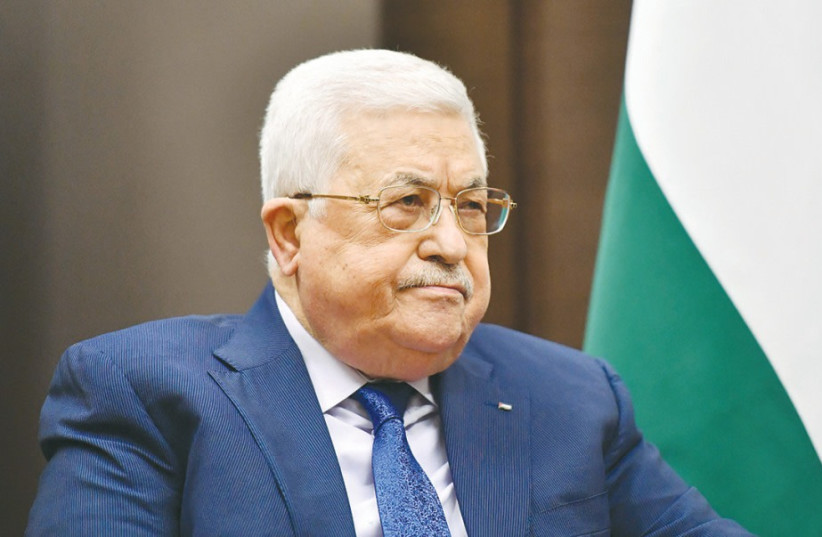Lapid to ‘Post’: How Israel can involve PA in post-war Gaza – opinion

The Israeli government’s delay in formulating its “Day After” plan isn’t due to a lack of clarity on what steps need to be taken but rather because it’s acutely aware of the required course of action. Not for the first time, real-life facts are clashing with Prime Minister Benjamin Netanyahu’s political needs.
What is good for the State of Israel is bad for the maintenance of his government. You cannot shape reality when you are dependent on a group of people who deny the existence of that reality. Just this past week, Finance Minister Bezalel Smotrich disclosed that it would be much easier to deal with Gaza “if there were only 100,000 Palestinians living there.” In other words, a senior government minister suggested that we close our eyes and pray fervently until two million Gazans disappear into outer space.
The tragedy intensifies precisely because it revolves around a controversial issue: incorporating the Palestinian Authority into the civil governance of Gaza. To be clear, no organization, individual, or state is seriously suggesting handing over control of Gaza to the Palestinian Authority. Not the Americans, no Arab country, not Benny Gantz, nor I.
Netanyahu’s dramatic announcement that he would prevent any attempt to “transfer control of Gaza to Mahmud Abbas” was almost comical. Netanyahu has fabricated a fictional adversary that he pledges to subdue. Let’s hope that at least in this regard, he will do a better job than he has against the real enemies we’ve been fighting in Gaza and on Israel’s northern border.
How Israel should plan for the “day after” in Gaza
IN THE real world, after the war ends Israel will have no desire to fund the education and waste management of Gazan residents. Instead, we should help establish an Arab-international coalition that will undertake the responsibility of managing the day-to-day affairs in the Gaza Strip.

Advancing diplomatic affairs that will lead toward normalization with Saudi Arabia should be part of this process, but a precondition of countries like Saudi Arabia and the UAE is that the Palestinian Authority be involved – even if just symbolically – in the civil administration of Gaza. Without this, the likelihood of them investing billions of dollars in the rehabilitation of Gaza is close to nil. Practically speaking, this is a reasonable move. The Palestinian Authority employs 26,000 civil servants in Gaza who are not aligned with Hamas, and so there is no reason not to make use of this administrative infrastructure.
Such a move would require a comprehensive overhaul of the Palestinian Authority. This demand is commonly shared by all parties involved. US President Joe Biden has called for a “revitalized Palestinian Authority,” which I am calling “de-radicalization,” but we are all talking about the same thing: The Palestinian Authority needs to put an end to the reprehensible incitement against Jews and Israelis in their school textbooks, halt the practice of compensating Palestinians for murdering Jews, and genuinely commit to combating corruption. Without addressing these concerns, nobody would be willing to endorse their involvement in the coalition tasked with supervising the day-to-day affairs of Gaza residents.
Israel will not hand over control of security matters to anyone else. Following the eradication of Hamas’s primary power and its command-and-control capabilities, the IDF will station forces along a new border with a buffer zone between Israel’s Gaza envelope communities and the Gaza Strip. Within this security buffer zone, which will include the Philadelphi Corridor, Israeli combat forces will enter and exit Gaza to prevent the resurgence of Hamas and the renewal of its governing capabilities. Israel will not agree to any proposals for the deployment of a multinational force, and certainly not for the installation of a technocratic government that includes Hamas. Following the events of October 7, Israel will solely control its own security.
At the same time, Israel needs to undertake a series of long-term actions aimed at the eradication of Hamas. It must lead a comprehensive international operation, led by the Mossad, to wipe out Hamas’s economic capabilities. Engaging in terrorism is expensive and cannot sustain itself without funding. Hamas has financial reserves in Turkey, bank accounts in Europe and the Far East, extensive real estate in Qatar, and investments in cryptocurrencies. Israel must ensure that these sources of funding vanish. Concurrently, Israel must be unrelenting in its hunt for Hamas leaders who are residing in the Gaza Strip, Beirut, and other locations.
WE WILL also need to establish other ground rules on Israel’s northern border. We will not tolerate a situation in which Hezbollah remains within firing range of Kiryat Shmona and Metulla. Diplomatic efforts with Lebanon that are currently being led by the Americans are commendable, but we will not hesitate to use force to ensure the safety of our citizens if they fail. The next time the UN Security Council convenes to condemn Israel, as is its habit, we must reply staunchly, saying: “Given that Hezbollah has completely disregarded UN Resolution 1701 and no one is enforcing it, we understand that UN Security Council resolutions have become non-binding recommendations, and we will act accordingly.”
Everything described here is a plan for the next three to five years. Following this, phase two of the Day After plan, which I made public a few weeks ago, will commence. It will involve a regional summit to address the Gaza issue. The summit will be part of the implementation of the normalization agreement with Saudi Arabia, as well as the strengthening of the Abraham Accords and the Negev Forum.
The gradual implementation of these measures will enable Israel to focus its efforts on its two main policy goals: erecting a regional security framework to counter Iran; and establishing a security infrastructure that would allow for the eventual political separation from the Palestinians.
Long before that, however, we need to deal with the current reality. The “day after” is the day a tractor goes out in the morning to plow the fields of Kibbutz Kfar Aza. It’s the day when a resident of Netiv Ha’asara makes himself a cup of coffee and gazes out, admiring the purple sunset. The day when the citizens of the State of Israel will know that no one is planning to murder them just because they are Jews. And not because Hamas does not want to, but because Hamas will have ceased to exist.
The writer is head of the opposition.
Translated by Hannah Hochner.





Comments are closed.